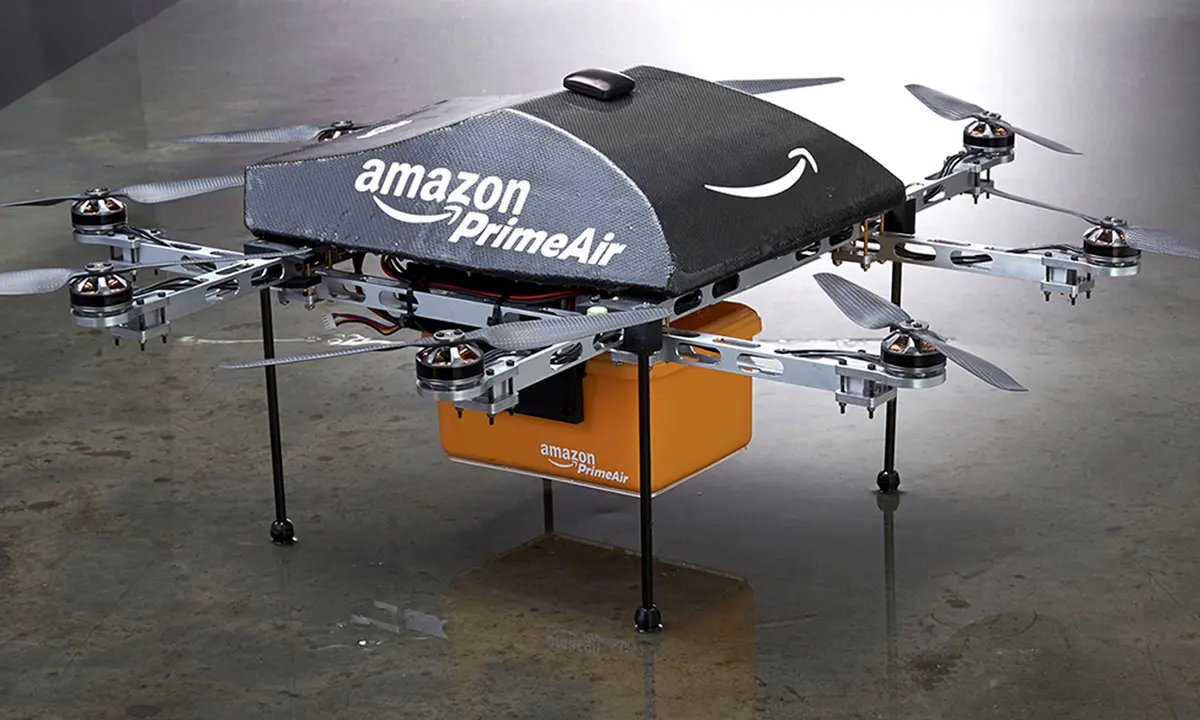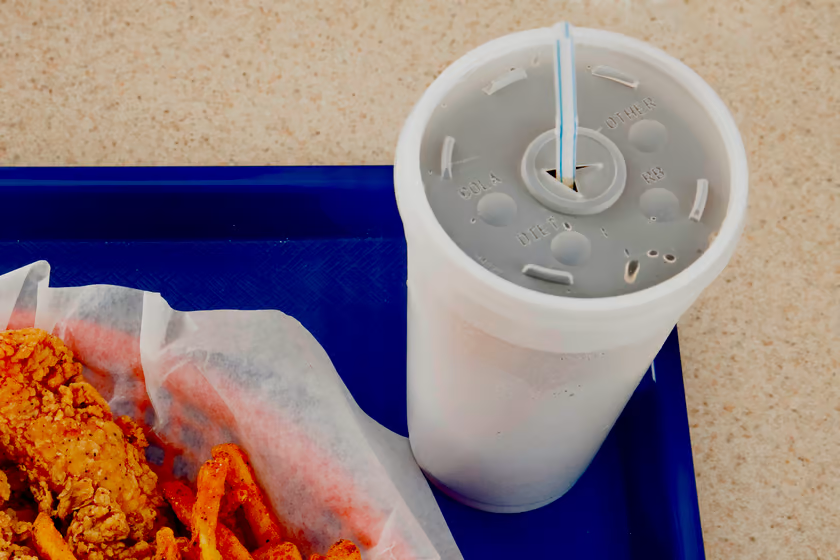Coventry University expert explains what Amazon drone deliveries means for jobs and the price of a package
SOURCE: HTTPS://WWW.COVENTRYTELEGRAPH.NET/
NOV 02, 2023

Drone deliveries are coming to the UK and it could mean a boost for jobs. Dr Safaa Sindi at Coventry University is an expert in logistics and autonomous technology.
And after news that Amazon has announced it will start delivering parcels by drones in the UK, she has answered questions from CoventryLive on what it means for society in general.
From the impact on jobs, the price of deliveries and how transformative it will really be, read what she had to say below.
Amazon has revealed that drones will be used to deliver parcels in the UK by the end of next year. Drones will first be used to distribute packages from the retail giant’s same-day delivery sites – with specific locations to be confirmed.
Dr Sindi is an assistant professor at Coventry University specialising in the integration of autonomous technology within logistics and supply chain operations. She is actively engaged in research related to the use of lightweight aerial drones for parcel delivery as part of a mixed fleet solution.
Will the drones deliver parcels to individual homes or to locations for consumers to pick up?
"Drone companies are currently in the experimental phase of testing last-mile deliveries to consumers' residences. However, to expand this service on a commercial scale while addressing privacy, security and safety concerns, they are contemplating the introduction of a click-and-collect model to gauge market interest.
"This approach aims to foster consumer trust, garner support from local authorities and potentially lead to investments in crucial infrastructure such as charging stations and landing sites. Transitioning to direct home deliveries requires successful BVLOS trials and infrastructure development, mirroring the convenient locations of current click-and-collect stations found in office complexes and shopping centres.
"While not identical to doorstep delivery, the click-and-collect model is expected to find consumer acceptance due to its lower privacy invasion, perceived safety benefits and noise pollution reduction. Furthermore, this well-established concept is unlikely to disrupt consumers' daily routines. The lack of existing commercial drone logistics licenses necessitates the development of policies and legislation to ensure the safety and protection of both operators and consumers in this evolving landscape."
What does this mean for jobs in delivery services?
"Currently, for drone parcel deliveries, the operational team includes a pilot, a parcel-loading operator and potentially a spotter to maintain a visual line of sight. In the case of a click-and-collect service, which lacks automated parcel-receiving systems, an operator at the delivery end is required to manage and allocate parcels to the correct lockers.
"This highlights that the present drone operations necessitate a workforce of 2 to 4 individuals, as opposed to traditional methods that typically require 1 to 2 personnel (a driver and a parcel-loading operator). Consequently, the integration of drones in logistics signifies an increase in workforce demands and an imperative for logistics providers to invest in staff training. Nevertheless, as autonomous drones and air traffic systems, alongside automated parcel-handling mechanisms, continue to advance, only a pilot or operator will be necessary. This development aligns drone delivery with traditional methods, where a workforce of 1 to 2 personnel suffices."
Will drone delivery be more environmentally friendly?
"Drones, like electric vehicles, rely on batteries and require charging, making them more environmentally sustainable throughout their operational lifespan when compared to traditional fossil fuel vehicles. However, it's crucial to acknowledge that drones come with capacity limitations, necessitating the use of multiple drones to transport the same payload as a single van.
"This could potentially contribute to heightened air traffic congestion and increased noise pollution. Additionally, the environmental implications of recycling drone batteries need further consideration, and comprehensive research is imperative to ascertain the overall environmental impact of drones throughout their life cycle."
How transformative is drone delivery for society in general?
"The landscape of consumer behaviour underwent a significant transformation during the COVID-19 pandemic, witnessing a marked uptake in contactless delivery and e-commerce purchases, particularly for smaller packages. In this evolving paradigm, drone deliveries have emerged as an attractive option due to their adaptability and their potential to not only complement existing logistics operations, but also to bolster the surging trend of online shopping and contactless delivery.
"Drones hold the promise of optimising the often inefficient last-mile delivery operation, offering swift and efficient parcel drop-offs, especially in remote or hard-to-reach areas. For home deliveries, a likely scenario entails the adoption of a click-and-collect model, allowing consumers to choose drone delivery and then collect their packages from designated locations, effectively addressing concerns related to privacy, security, and noise. The integration of drones would necessitate the development of dedicated infrastructure, transforming shops and communal areas into hubs for sending and receiving parcels.
"This innovative approach to delivery has the potential to provide crucial support to individuals residing in remote or inaccessible locations and cater to vulnerable consumers, particularly among the older demographic, who may have mobility constraints and require assistance with medical supplies and essential goods. In essence, the integration of drones into the logistics ecosystem offers an opportunity to harness lower airspace for efficient and swift deliveries that align with evolving consumer preferences."
Will drone deliveries mean consumers pay more or less for their parcels?
"As with any emerging technology, the question of achieving economies of scale becomes pivotal for companies as they grapple with the decision of absorbing additional costs or passing them on to consumers. Currently, it's unlikely that drone deliveries would be priced on par with traditional methods, although this may change with advancements in technology and policy frameworks. In many instances, industry giants like Amazon, DHL and UPS are willing to shoulder extra expenses to secure a substantial market share.
"As the technology matures and gains widespread commercial adoption, operational costs are anticipated to decrease, allowing companies to regain profitability. To entice potential users, it's plausible that consumers might be encouraged to subscribe to a drone delivery service, perhaps with the incentive of an initial trial period at no cost."
Will drones one day completely replace in-person delivery?
"Drone delivery is poised to serve as a supplementary service alongside traditional logistics operations, offering a particularly efficient solution for small parcel deliveries for the last mile. The direct drone delivery of substantial or bulky parcels to individual consumers remains unlikely, as such payloads demand larger drones and additional infrastructure for landing and drop-off. In cases involving large parcels, the feasible approach may involve delivery to designated click-and-collect stations, provided the station's capacity can accommodate these bulkier items."
LATEST NEWS
WHAT'S TRENDING


Data Science
5 Imaginative Data Science Projects That Can Make Your Portfolio Stand Out
OCT 05, 2022

This New Autonomous Drone for Cops Can Track You in the Dark
SOURCE: HTTPS://WWW.WIRED.COM/
SEP 26, 2023
Tamil Nadu government approves farm mechanisation subsidy for Garuda Aerospace drones
SOURCE: HTTPS://AGRICULTUREPOST.COM/
SEP 25, 2023
The Future Of Biomedical Transport: Drones At The Service Of Health
SOURCE: HTTPS://WWW.EMERGENCY-LIVE.COM/
AUG 25, 2023
Groundbreaking Drone Flights with Radiation Detection Pave the Way for Improved Safety on Nuclear Sites
SOURCE: HTTPS://DRONELIFE.COM/
AUG 11, 2023
Drone with sticky patches studies biodiversity by bumping into trees
SOURCE: HTTPS://WWW.NEWSCIENTIST.COM/
JUL 13, 2023
Drink cup lids inspire a system that could keep drones flying safely
SOURCE: NEWATLAS.COM
OCT 27, 2022





